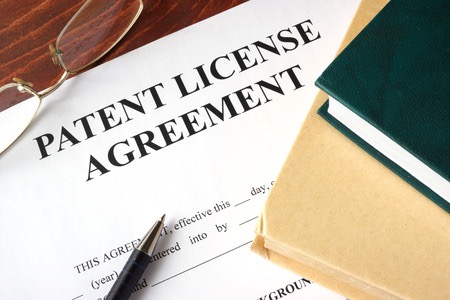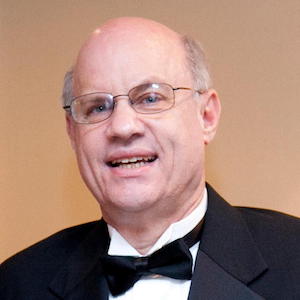Prospective licensees/purported infringers should carefully evaluate the possibility of patent acquisition well in advance of seeking to disparage such patents during licensing negotiations, litigation, or adverse proceedings in the USPTO.
 Occasionally, a prospective licensee/purported infringer will acquire patents offered to that party during licensing negotiations, litigation, or adverse proceedings in the United States Patent and Trademark Office. Obtaining a licensor’s patents either outright or through an exclusive license allows the acquiring party the freedom to operate by eliminating such patents as an impediment to present and future plans. Moreover, the acquiring party now has the ability to assert such patents against others to obtain market exclusivity or alternatively, to obtain a revenue stream via patent licensing.
Occasionally, a prospective licensee/purported infringer will acquire patents offered to that party during licensing negotiations, litigation, or adverse proceedings in the United States Patent and Trademark Office. Obtaining a licensor’s patents either outright or through an exclusive license allows the acquiring party the freedom to operate by eliminating such patents as an impediment to present and future plans. Moreover, the acquiring party now has the ability to assert such patents against others to obtain market exclusivity or alternatively, to obtain a revenue stream via patent licensing.
All too often, the prospective licensee/purported infringer usually doesn’t begin its efforts to acquire the patent(s) until after making disparaging statements about them during negotiations. As an example, consider the time line discussed in the case of Gust, Inc. v. Alphacap Ventures, LLC, No. 2017-2414 (Fed. Cir. September 28, 2018) in which Alphacap Ventures, the purported infringer, demanded re-assignment of the patent owner’s patents as part of a settlement offer, but only after arguing for the invalidity of such patents under 35 U.S.C. § 101.
Disparaging patents prior to their acquisition by making claims of invalidity or unenforceability or both puts the acquired patents at risk should the acquiring patent later seek to assert such patents against others. The now-famous case of Precision Instrument Manufacturing Co. et al. v. Automotive Maintenance Machinery Co., 324 U.S. 806 (1945) demonstrates why disparaging patents and then later asserting those patents against others poses a significant danger. In that case, the parties were assignees of interfering patent applications. During the ensuing interference proceedings in the United States Patent and Trademark Office, Automotive Maintenance discovered that Precision Instrument had intentionally falsified the true inventor’s identity along with the date of conception and reduction to practice. Confronted by such claims of fraud, Precision Instrument settled the interference by conceding priority and having its application assigned to Automotive Maintenance.
Thereafter, Automotive Maintenance sued Precision Instrument on the patent that had issued on the application that Automotive Maintenance had acquired from Precision Instrument. The District Court dismissed the infringement action, holding that Automotive Maintenance was guilty of unclean hands and thus lacked the necessary equity to pursue its claim. On appeal, the Court of Appeals reversed, finding that the District Court’s judgment was unsupported by the evidence.
The Supreme Court reversed, agreeing with the District Court that Automotive Maintenance lacked the necessary equity to prevail. The Supreme Court noted that the patents in question were “steeped in perjury.” Automotive Maintenance knew that the application it obtained from Precision Instrument had fraudulently identified the true inventor, yet Automotive Maintenance choose to conceal that fact. In refusing to enforce the patent, the Court announced the following principle:
The public policy against the assertion and enforcement of patent claims infected with fraud and perjury is too great to be overridden by such a consideration. Automotive knew of and suspected the perjury and failed to act so as to uproot it and destroy its effects. Instead, Automotive acted affirmatively to magnify and increase those effects. Such inequitable conduct impregnated Automotive’s entire cause of action and justified dismissal by resort to the unclean hands doctrine.
The likelihood that a given set of acquired patents will possess the degree of infirmity as was present in Precision Instrument Manufacturing Company is probably rare. However, the doctrine of unclean hands still remains viable today. Indeed, the Federal Circuit, in the case of Gilead Sciences, Inc. v. Merck & Co., Inc., Nos. 2016-2302, 2016-2615 (Fed. Cir. 2018), recently re-affirmed this doctrine by holding Merck’s patents unenforceable based on the “unclean hands” of its employee during due diligence discussions with Pharmacia who was later acquired by Gilead.
Prospective licensees/purported infringers should carefully evaluate the possibility of patent acquisition well in advance of seeking to disparage such patents during licensing negotiations, litigation, or adverse proceedings in the United States Patent and Trademark Office. While disparaging the patents question might serve a useful purpose in reducing their value, such disparaging statements will likely haunt the new owner during subsequent assertion assuming the new owner conceals such statements because of their potentially harmful nature. Thus, a prospective licensee/purported infringer who ultimately does acquire such patents after making such disparaging statements will need to carefully consider whether subsequent enforcement of such patents will trigger a counterclaim for unenforceability under the unclean hands doctrine.

![[IPWatchdog Logo]](https://ipwatchdog.com/wp-content/themes/IPWatchdog%20-%202023/assets/images/temp/logo-small@2x.png)

![[Advertisement]](https://ipwatchdog.com/wp-content/uploads/2024/05/Quartz-IP-May-9-2024-sidebar-700x500-1.jpg)
![[Advertisement]](https://ipwatchdog.com/wp-content/uploads/2024/04/Patent-Litigation-Masters-2024-sidebar-700x500-1.jpg)

![[Advertisement]](https://ipwatchdog.com/wp-content/uploads/2021/12/WEBINAR-336-x-280-px.png)
![[Advertisement]](https://ipwatchdog.com/wp-content/uploads/2021/12/2021-Patent-Practice-on-Demand-recorded-Feb-2021-336-x-280.jpg)
![[Advertisement]](https://ipwatchdog.com/wp-content/uploads/2021/12/Ad-4-The-Invent-Patent-System™.png)






Join the Discussion
One comment so far.
Pro Say
December 13, 2018 04:54 pmThanks Robert.
Sage advice indeed for the infringer lobby folks.
Acquire before you disparage.